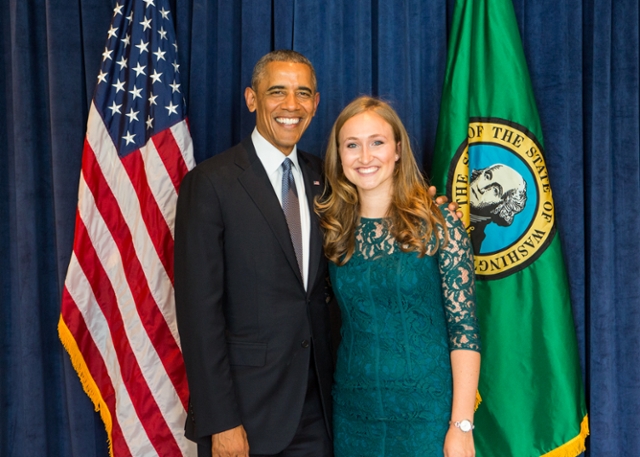Page 108 • (1,600 results in 0.028 seconds)
-
A hallmark of PLU’s global education profile is the high level of participation of its faculty. To sustain this level of participation, the Wang Center is committed to supporting faculty through
://studyabroad.sit.edu/advisors-faculty/seminars-abroad-for-faculty/ • School for Field Studies – www.fieldstudies.org Since 1980, the School for Field Studies (SFS) has been teaching students to address critical environmental problems using an interdisciplinary, experiential approach to education. Students on SFS programs study at research stations in Costa Rica, Turks and Caicos, Australia, New Zealand, Panama and Bhutan examining the interdependent cultural, economic, and ecological aspects of real-world
-

Philosophy professor Adam Arnold is a new addition to PLU’s faculty. Originally from the Tacoma area, he earned a Bachelor of Arts degree from the University of Washington, Tacoma in 2009. From there, he earned the opportunity to study away at Johann Wolfgang Goethe University…
., his epistemology, political and social philosophy, aesthetics, and his philosophy of nature.” Dr. Arnold taught courses at the University of Washington Tacoma before coming to PLU. These courses included: Environmental Ethics, Ethics in Society, and Introduction to Philosophy. In the past at PLU, Dr. Arnold has taught two courses: Philosophy of Love and Sex, and Women and Philosophy. During Fall 2017 at PLU, Dr. Arnold is teaching Business Ethics. Dr. Arnold became interested in philosophy as an
-
Semester-long Themed Events Begin Feb. 12 “Injustice anywhere is a threat to justice everywhere.”—the Rev. Martin Luther King, Jr. By Sandy Deneau Dunham PLU Marketing & Communications TACOMA, WA (Jan. 15, 2015)—The semester beginning Feb. 4 at Pacific Lutheran University takes on a special focus…
. “This semester represents a commitment to naming what is, to collaboration across divisions and departments, and showcasing the many events that challenge each of us to live more thoughtfully. These programs hold us accountable to live our stated values and invite us to reflect on justice issues on our campus, in our local community and around the world.” Topics covered in the coming semester include sexual assault, sex trafficking, environmental justice, the removal of indigenous children from
-
RecycleMania is a friendly competition and bench marking tool for college and university recycling programs to promote waste reduction activities to their campus communities.
RecycleManiaRecycleMania is a friendly competition and bench marking tool for college and university
-
The following are PLU’s annual events. Actual dates are published at www.plu.edu/calendar. Events are subject to change. For more information call us at 253-535-7450 or email to events@plu.edu.
Corporation MeetingCongregation Relations350SeptemberPI, CP Convocation Office of the President1000SeptemberPI, AC Constitution DayOffice of the Provost200-250September Study Away FairWang Center for Global and Community Engaged Education100September Lutheran Studies ConferencesReligion DepartmentSeptemberPI Environmental Studies DinnerEnvironmental Studies50September HomecomingOffice of Alumni and Constituent Relations1100OctoberPI, CP Alumni Board (paired w/homecoming)Office of Alumni and Constituent
-
Blog depicts people, places on seven continents From the tip of the world in Antarctica to the top of the highest peak in Africa, PLU students are immersing themselves in the world and gaining valuable insight this J-Term. Nearly 400 students are studying away on…
Cliff Rowe. She described the city as “the epitome of wealth.” “Hollywood, Beverly Hills, and Times Square have nothing on Dubai,” she wrote in a Jan. 9th post. “The architecture, the shopping, the city’s structure itself; every aspect demonstrates money, power, and high, high class.” Within this wealthy society, Knutson doesn’t see value placed on environmental stewardship or sustainability. The city built three man-made structures off its coastline and has large numbers of skyscrapers are under
-

Jennifer Cigler ’12 plans to go to law school after completing her history degree at PLU. She was attracted by the small classes and the support on campus for veterans. Veterans find a home base at PLU By: Barbara Clements For Ryan Butters ’12, PLU…
classroom, and become the first in his family to attend college. These stories are all familiar to Michael Farnam, himself a veteran and currently working on his environmental studies degree at PLU. He plans to graduate in 2013. Veterans find a welcoming home and academically supportive environment on campus, Farnam said. As PLU’s VetsCorps Representative, Farnam helps the approximately 130 veterans navigate through financial aide and scheduling questions, to whether they should go back to school at all
-

Life-Changing Connections Across Time and Continents The ‘Namibia Nine’ film crew on location, from left: Andrea Capere, Princess Reese, Joanne Lisosky, Melannie Denise Cunningham, Shunying Wang, Maurice Byrd. PLU Film Team Spends a Month in Namibia Exploring Transformative Experiences in Higher Ed—Including Their Own By…
have been equally successful in their careers, from forensics and foreign relations to education and environmental policy-making. The PLU filmmakers are talking to them all, exploring the deep relationship these Namibians have with each other and with the university they call their “home away from home”— all the while gleaning insights into themselves as well as the graduates. “In the film, each of the Namibia Nine describes how what they lived and learned at PLU is engrained in every aspect of
-

Economics major Nellie Moran ’15 and President Barack Obama at a fundraiser in Seattle this summer. (Photo by White House Photographer Michael Rosenburg.) PLU Interns Make Interesting and Key Connections Over the Summer By Barbara Clements, PLU Marketing and Communications First Surprise : President Obama…
polishing up her resume. Her interest, and preparation, helped her nail the interviews with Bryce Manso ‘10 and Tisha Graham ’09, both who work as researchers at Fred Hutch. So for the past 10 weeks, Nelson has been working on nano-vaccine research. “I don’t think you realize how valuable every single summer is, and you need to start looking for internships early and often,” she says. Nelson said she is deciding now between lab research and environmental field research as a possible future career
-

Look What (and Who) is New at PLU The newest members of PLU’s faculty gather in front of the library. (Photo: John Froschauer/PLU) By Sandy Deneau Dunham PLU Marketing & Communications It’s a historic time at PLU as we mark our 125th academic year, but…
new program—and a new way to teach—that includes eight wide-ranging blended or hybrid courses this fall that combine in-class and self-directed online learning: • BUSA 302: Business Finance • BUSA 308: Principles of Marketing • COMA 360: Public Relations Writing • ECON 111: Principles of Microeconomics: Global and Environmental • ECON 322: Money and Banking • EDUC 394: Technology & Teaching • MUSI 120: Music and Culture • PHED 100: Personalized Fitness program In addition
Do you have any feedback for us? If so, feel free to use our Feedback Form.


